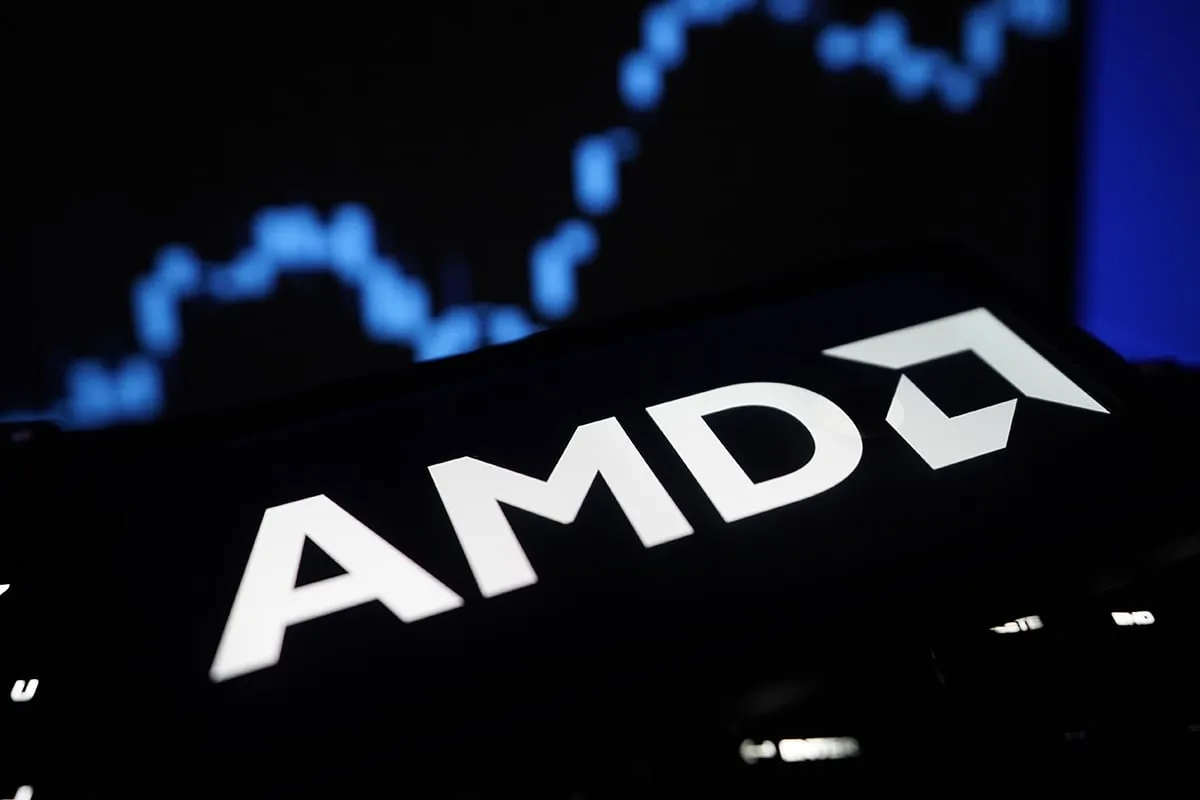Advanced Micro Devices Inc. (AMD), the closest competitor to Nvidia Corp. in the race for artificial intelligence processors, revealed that Oracle Corp. plans to deploy a massive wave of its next-generation MI450 chips beginning next year.
According to a statement released Tuesday, Oracle will install 50,000 of these advanced semiconductors in its data center systems starting in the third quarter of 2026. The new infrastructure will feature AMD’s cutting-edge processors and networking technology, underscoring Oracle’s growing investment in AI computing power.
This announcement adds to a growing list of commitments from major tech and AI companies that are aggressively expanding their computing capabilities to meet surging demand for artificial intelligence services. The global AI boom has created an arms race for high-performance chips, with companies like AMD and Nvidia vying for dominance in the data center market.
For AMD, the Oracle partnership marks another major validation of its technology and ambitions. Based in Santa Clara, California, AMD has been positioning itself as a serious challenger to Nvidia, which currently holds the lion’s share of the AI chip market.
Like its larger rival, AMD produces AI accelerators built on graphics processing units (GPUs), in addition to general-purpose central processors and networking chips. The company’s latest strategy aims to deliver full, turnkey computing systems to data center operators a capability that has long given Nvidia a competitive edge.
According to data from research firm IDC, AMD shipped roughly 100,000 AI processors in the second quarter of this year. By comparison, Nvidia shipped an estimated 1.5 million units in the same period a gap that highlights both Nvidia’s market dominance and the massive growth opportunity ahead for AMD.
While Oracle and AMD have yet to specify an exact completion date for the deployment, both companies said the project will expand further into 2027 and potentially beyond. They also did not disclose how much of AMD’s total chip output Oracle’s order will represent.
The deal follows another high-profile partnership for AMD a recently announced agreement with OpenAI, the company behind ChatGPT and one of the most influential players in the AI space. Under that long-term arrangement, OpenAI plans to purchase computers powered by AMD accelerators with a total capacity of six gigawatts over several years.
That collaboration has already sparked optimism among investors, fueling a strong rally in AMD shares as markets anticipate the company gaining ground in the lucrative AI hardware sector.
Adding to the competitive intensity, OpenAI on Monday unveiled a separate agreement with chipmaker Broadcom Inc. to add another 10 gigawatts of computing capacity. The move further underscores how AI firms are diversifying their hardware partnerships to ensure sufficient infrastructure for the next generation of artificial intelligence applications.
Oracle’s adoption of AMD’s MI450 chips signals growing confidence in AMD’s ability to deliver the performance and scalability needed for large-scale AI workloads. It also strengthens AMD’s foothold in the enterprise cloud market, where Oracle has been expanding aggressively to compete with giants like Amazon Web Services, Microsoft Azure, and Google Cloud.
The MI450, expected to launch in 2025, builds on the success of AMD’s existing MI300 series chips that have already drawn attention from major hyperscalers for their power efficiency and AI acceleration capabilities. The new processors are expected to deliver substantial improvements in performance per watt and support for larger, more complex AI models.
For Oracle, integrating AMD’s new technology represents another step toward expanding its cloud infrastructure and AI computing capacity. The company has been investing heavily in data center hardware to support its customers’ growing appetite for AI-driven workloads, from natural language processing to predictive analytics.
For AMD, partnerships like those with Oracle, OpenAI, and other hyperscalers are crucial in narrowing the gap with Nvidia. While Nvidia continues to dominate the market, AMD’s growing ecosystem of data center clients positions it as a credible alternative for companies seeking diverse supply chains and cost-efficient AI solutions.
As the AI hardware landscape evolves, these large-scale collaborations underscore a fundamental truth: the future of artificial intelligence depends as much on chip innovation as it does on strategic alliances. With Oracle’s latest commitment, AMD gains not just a powerful customer, but also a stronger foothold in the next wave of global AI infrastructure growth.

Subscribe to our newsletter!
As a leading independent research provider, TradeAlgo keeps you connected from anywhere.








